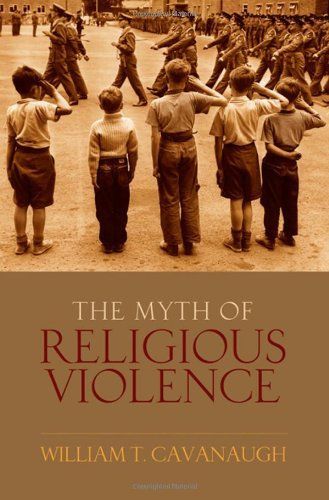The achievement of an advantage in Parliament as a result of elections, and the formation of a government by a majority which wishes to realise its programme is equivalent to the subordination of the state to a specific group which will be able to use the state institutions to force through its own values. Of course, it will be able to do this only to a limited extent, in accordance with the procedures in force in a democratic state of law, and in a limited time period, determined by the next elections. Nevertheless, nothing stands in the way of defining modern democracy as a particular type of fundamentalist state in which competing groups mutually recognise the right of existence in one political community and agree that the group which successfully achieves electoral verification will be able to realise its particular set of values in a strictly defined time period, using the state institutions to this end.

It is also not accidental that, together with the arrival of the era of democracy, the state significantly extended the range of its activities[7]. The most forcible expression of the takeover by the state of the duties of the ethical communities, was the creation of state educational institutions and the introduction of compulsory school education. Another symptom is the active intervention in the sphere of the economy and the realisation of the principles of a welfare state. Both examples are significant in that – as one may seriously argue – they are carried out with the violation of elementary individual rights: parents are deprived of the right to bring up their children in accordance with their system of values, also – as in the case of the introduction of a progressive taxation system – the binding force of property rights is significantly restricted.
This type of state encroachment on the privacy of the citizen could become accepted only because its justification seemed not only to not violate, but to even enrich the idea of autonomy, which is fundamental for modern society. This justification drew attention to the fact that, although people, who are perceived as moral entities, are equal, not all of them have an equal chance to lead autonomous lives. This requires certain external conditions. For example, sufficient wealth to live, a suitable level of personal culture and education. The abstractly formulated property rights do not exclude the situation where someone swims in riches, and someone else starves to death. Since in the majority of cases these are situations which are the nobody’s fault, but are decided by chance – someone is simply born into the world in this or another family – it would be unfair to recognise this fact as the norm. This is the origin of the demand for the state to conduct active politics which would provide equal chances for an autonomous life. Without discussing the correctness of this argument[8], it is worth paying attention to one thing: the principle of ensuring external conditions of autonomy is replaced by the principle of supporting and promoting autonomy itself. In contrast to the minimal state, which only creates and guarantees the conditions for everyone to realise ethical values, the democratic state carries within it a plan of the common good – this is autonomy understood, no longer as the necessary condition for a good ethical life, but as an ideal and self-existing aim.
The openness of the democratic system to various systems of values modifies not only the functions of the state, but also the opposite – it has a significant influence on the existing ethical communities as well. Their members, by obtaining citizen’s rights, become members of a new community – the democratic political community. Therefore, an ethical split takes place here, the phenomenon of simultaneous membership to two communities: to the ethical community, based on a rich system of values, and to the political community, with its minimalist ethos, limiting itself to respect for the autonomy of the individual. This ethical double rooting of the citizens can lead to a crisis in their ethical identity.
The main problem of ethical communities in the democratic state is the emergence of a uniform public sphere influencing all citizens without exception. The openness of the democratic state to various systems of values means that the members of these communities must agree with the public presence of reprehensible, and, from their point of view, clearly immoral things. One may assume that with sufficiently strong rooting in the values of one’s own community, such a confrontation does not necessarily have to end with the washing away of these values and their relativisation, but the opposite – it could bear fruit by deepening the consciousness of one’s own ethical distinctiveness. This is certainly correct in relation to mature people, however it is very doubtful in the case of young people who are not yet fully developed. The ethical identity of the latter is usually based on the behavioural patterns which they meet most often.
Initiation into the world of values is always made in the public sphere. In the democratic system, ethical communities lose the comfortable situation of a limited, but ethically uniform, space in which successive generations could peacefully enter. Where the influence of the democratic public sphere is felt, the natural process of initiation to ethical communities is disrupted; rather, growing up in a world of values appropriate to a democratic political community becomes natural. In such a situation, a condition for the survival of the ethical communities is the maintenance of their own public spheres, separate and partly isolated from the uniform democratic public space, in which a sufficiently strong ethical rooting of new members of the community could be carried out, so that they would be capable of standing up to the relative size and pressure of democratic customs.
Regardless of how specific communities cope with this pressure, it is a fact, that in the framework of the democratic state, a clear tendency exists to make ethical attitudes widespread, where the whole system of values is reduced to respecting the autonomy of the individual. A new ‘democratic confessional community’ is created and reproduced in a natural way. This new quality lies in the fact that, unlike other ethical communities, it is no longer a community based on a rich ethical system.
It could seem that for the modern model of the state, the appearance within its framework of a community with a minimalist ethos is not significant. Its main task is, after all, to ensure conditions of peaceful co-existence of followers of different systems of values, and as long as that community respects the general rules of the game, it has no reason to worry. In the case where the state observes the principles of the state of ethical minimum and maintains the role of impartial arbiter, the communities themselves are responsible for the erosion of their ethically rich systems of values, their ethos. The competition on the market of values and ideas, while ensuring elementary safety and the possibility of openly propagating their message, is the best test of credibility for ethical communities and the faith and prudence of its members.
Nevertheless, this competition must be honest, conducted according to fair principles within the local state of law. However, while every attempt by “rich” ethical communities to force through an element of their system of values in the form of universal law is accompanied by an outcry, such practices of using the instruments of the state to support the minimalist ethos of the ‘democratic confessional community’ most frequently remain unnoticed. This community finds itself in a privileged situation, since the spreading of its particular system of values can be presented as the defence of general principles which constitute the basis for the existence of the modern state. Of course, the fact that it wishes to propagate its ethical ideal in the whole of society is a natural thing and certainly – just like all other ethical communities – it has every right to do so. However, when it attempts to use the state apparatus to realise its own ethos, it violates the basic rule which prohibits the state of law – even if it is democratic – to support any particular system of values, including those, which in content, do not differ in any way from the minimum values guaranteed by the state. In such a case we are dealing with an evident case of a fundamentalist state in which a dominant community forces the remaining communities to accept its minimalist ethos as their ethical ideal.












